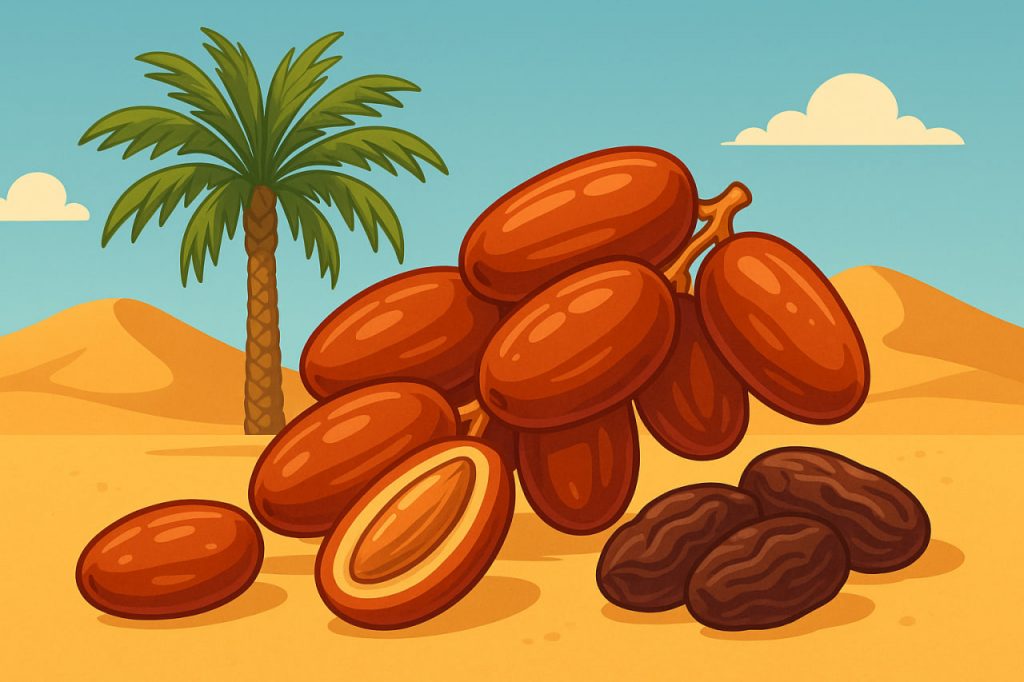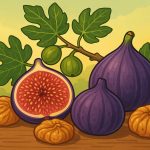Dates are the fruits of the date palm tree (Phoenix dactylifera), one of the oldest cultivated plants in human history. Originating from the Middle East and North Africa, dates have been a staple food for thousands of years, valued for their sweetness, long shelf life, and rich nutritional profile.
Botanical Characteristics
The date palm is a tall tree that can reach up to 20–25 meters in height. It thrives in hot, arid climates and is especially common in desert regions. Dates grow in large clusters and can be harvested in different stages of ripeness, from soft and moist to fully dried and chewy.
Nutritional Value
Dates are highly nutritious and often called “nature’s candy” because of their natural sweetness:
- Carbohydrates – mostly natural sugars like glucose, fructose, and sucrose, providing quick energy.
- Fiber – supports digestion and helps maintain stable blood sugar levels.
- Vitamins – especially vitamin B6, vitamin K, and small amounts of vitamin A.
- Minerals – potassium, magnesium, copper, and iron.
- Antioxidants – flavonoids, carotenoids, and phenolic acids that protect cells from damage.
Health Benefits
- Energy boost – Ideal for athletes and people needing quick energy.
- Digestive support – Fiber helps prevent constipation and supports gut health.
- Heart health – Potassium and magnesium regulate blood pressure and heart function.
- Bone strength – Minerals like calcium, phosphorus, and magnesium strengthen bones.
- Blood health – Iron in dates supports the production of red blood cells.
Cultural and Historical Significance
Dates hold deep cultural and religious importance. In Islamic tradition, they are often eaten to break the fast during Ramadan. Ancient civilizations such as the Egyptians and Mesopotamians cultivated dates as a symbol of prosperity and life in desert environments.
Uses in Cuisine
- Fresh – eaten as a sweet fruit.
- Dried – commonly used in desserts, energy bars, and traditional sweets.
- Stuffed dates – filled with nuts, cheese, or chocolate.
- Syrups and pastes – used as natural sweeteners.
- Traditional medicine – used for energy recovery and digestion.
Conclusion
Dates are more than a delicious fruit—they are a cultural treasure and a powerhouse of nutrition. With their natural sweetness, minerals, and antioxidants, dates provide both energy and health benefits, making them a timeless food that continues to play an important role in diets worldwide.
Glossary
- Phoenix dactylifera – the scientific name of the date palm.
- Flavonoids – plant-based antioxidants with health-protective properties.
- Fructose – a natural sugar found in fruits.
- Ramadan – the Islamic holy month of fasting, where dates are traditionally eaten to break the fast.
- Natural sweetener – a substitute for refined sugar made from fruits or plants.


